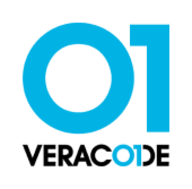

Veracode and Check Point CloudGuard WAF compete in the security solutions category. Veracode seems to have the upper hand in integration capabilities while CloudGuard stands out in advanced threat prevention.
Features: Veracode is known for its code scanning capabilities, easy integration with development workflows, and detailed analytics. Check Point CloudGuard WAF offers comprehensive web protection, real-time threat intelligence, and automated security measures.
Room for Improvement: Veracode could improve its scanning speed, update its reporting tools to be more intuitive, and address complex initial configurations. Check Point CloudGuard WAF needs better documentation, streamlined configuration processes, and improvements in customer support responsiveness.
Ease of Deployment and Customer Service: Veracode is noted for straightforward integration and supportive customer service, though initial configurations may be complex. Check Point CloudGuard WAF provides a smooth deployment process with mixed customer support feedback.
Pricing and ROI: Veracode is priced fairly relative to its capabilities with a solid ROI. Check Point CloudGuard WAF is viewed as a premium option, justified by its extensive feature set, making it a wise investment for comprehensive security needs.
When we are attacked, we can understand how important the solution is.
When you migrate to the cloud, it feels like saving 90% of your time.
Most of the operations happen in the background, so I do not spend much time on it.
The scanners of Veracode bring status of the weaknesses in the current infrastructure. It scans and provides reports regarding the servers, the network, and the applications running on those servers.
They need to increase the number of people for 24/7 support.
They were responsive even before we committed to buying their solution.
I also received full technical support, especially during the implementation.
They are very responsive and quick to help with queries within our scope.
They respond very quickly since security is something critical.
If I need to scale, I open a Whatsapp group with the director and the team, and we quickly proceed to do so.
Cloud solutions are easier to scale than on-premise solutions.
It is very stable.
It is very stable, never crashing or giving me an error that I can see.
I did not have any issues in the last three years during which I had more than ten critical services running on CloudGuard.
The provider could improve by providing better guidance and support during the configuration process.
It's not something you manipulate, it's not an antivirus where you deal with signatures, updates, and upgrades every day.
I would say that the more automation this product has, the easier it will be to work with it.
If it could be integrated directly with code repositories such as Bitbucket or GitHub, without the need to create a pipeline to upload and decode code, it would simplify the code scan process significantly.
Veracode can improve the licensing model as it is a bit confusing.
Maybe the boards could be made easier to understand or easier to customize.
It is more expensive than f5, where we purchased everything as bundles, and Check Point costs more, but it is worth the money.
I know that its price is relatively expensive compared to other products but it gives benefits that are worth it.
It is a really good price considering the functionalities of the product and the price of the license.
It's not the most expensive solution.
If there's a security gap, you'll never know the cost or effect.
The pricing and model align with the needs of the developer community and the cybersecurity office.
Upon implementation and evaluation with third-party penetration testing, it meets rigorous security standards required for dealing with financial institutions.
It can protect against zero-day attacks and hidden anomalies.
The solution preemptively blocks zero-day attacks and detects hidden anomalies effectively.
It offers confidence by preventing exposure to vulnerabilities and helps ensure that we are not deploying vulnerable code into production.
The best features in Veracode include static analysis and the early detection of vulnerable libraries; it integrates with tools such as Jenkins.
The flexibility to define rules and the ability to update those rules on the fly are valuable features.


Check Point CloudGuard WAF (Web Application Firewall) is a cloud-native security solution designed to protect web applications and APIs from known and unknown threats. It employs contextual AI and machine learning to prevent zero-day attacks without relying on traditional signature-based detection methods, ensuring that applications remain secure even as new threats emerge.
CloudGuard WAF offers preemptive protection against vulnerabilities by using machine learning to identify and block zero-day threats like Log4Shell and Spring4Shell. It provides precise detection capabilities, minimizing the need for constant fine-tuning and reducing false positives. Designed for cloud-native environments, CloudGuard WAF integrates seamlessly with CI/CD pipelines, supporting automated deployment and configuration through infrastructure as code (IaC) or APIs.
Key Features of CloudGuard WAF:
Benefits of CloudGuard WAF:
CloudGuard WAF is particularly suitable for organizations using modern, cloud-based architectures that require robust, automated security measures for both applications and APIs. Its capabilities are valuable for industries that handle sensitive data, such as finance or healthcare, where compliance and data protection are critical. Pricing and support are typically customized to the specific needs and scale of the deployment, with options for continuous updates and maintenance through Check Point's managed services.
CloudGuard WAF by Check Point provides advanced, AI-driven protection for web applications and APIs, offering automated, precise threat prevention and easy integration with cloud-native environments, ensuring robust security without the need for extensive manual configuration.
Veracode is a leading provider of application security solutions, offering tools to identify, mitigate, and prevent vulnerabilities across the software development lifecycle. Its cloud-based platform integrates security into DevOps workflows, helping organizations ensure that their code remains secure and compliant with industry standards.
Veracode supports multiple application security testing types, including static analysis (SAST), dynamic analysis (DAST), software composition analysis (SCA), and manual penetration testing. These tools are designed to help developers detect vulnerabilities early in development while maintaining speed in deployment. Veracode also emphasizes scalability, offering features for enterprises that manage a large number of applications across different teams. Its robust reporting and analytics capabilities allow organizations to continuously monitor their security posture and track progress toward remediation.
What are the key features of Veracode?
What benefits should users consider in Veracode reviews?
Veracode is widely adopted in industries like finance, healthcare, and government, where compliance and security are critical. It helps these organizations maintain strict security standards while enabling rapid development through its integration with Agile and DevOps methodologies.
Veracode helps businesses secure their applications efficiently, ensuring they can deliver safe and compliant software at scale.
We monitor all Application Security Tools reviews to prevent fraudulent reviews and keep review quality high. We do not post reviews by company employees or direct competitors. We validate each review for authenticity via cross-reference with LinkedIn, and personal follow-up with the reviewer when necessary.